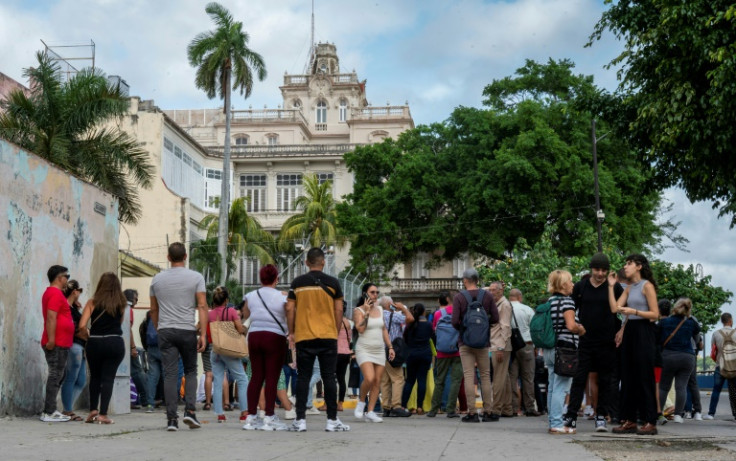
Water shortages are the latest addition to the growing list of deprivations Cubans are experiencing at the moment, as the country's economic malaise continues to deepen.
Hundreds of thousands of users are being affected by the situation this month, according to Reuters. Concretely, the figure is over 600,000, over 5% of the country's current population of some 10 million.
Havana is the most impacted city, with over 30,000 users without a steady water supply, the government said. Officials blame the ever-increasing amount of issues on a crumbling infrastructure and lack of fuel, as the state's coffers run dry.
It's unlikely the situation will be fixed soon, as spare parts are in short supply. A lack of fuel and transportation makes emergency supply via cistern truck complicated as well. Rolling blackouts don't help either.
The newest issue comes as the government reduced the subsidized bread rations given to the population, slashing it by a quarter. The bread unit will go from 80 grams to 60, Reuters reported. It is expected to have a considerable impact, as most Cubans don't earn enough to afford non-subsidized goods in the private market.
The country's authoritarian government said it was running out of flour needed to produce the bread, saying it was a result of the decades-long embargo the U.S. has imposed on the island.
However, the embargo has been going on for decades and the current crisis has deepened over the past months. It has gotten to a point where the Díaz-Canel government sought help from the World Food Programme to guarantee the provision of powdered milk, also scarce in the island.
A recent study published by the Cuban Observatory of Human Rights (OCDH) and titled "The State of Social Rights in Cuba," indicates that 89% of the population will end the year living in extreme poverty.
The OCDH conducted interviews with over 1,000 adults across 78 municipalities, revealing that 72% of respondents consider the food crisis the most pressing issue. A significant portion of the population, particularly those over 70, struggle to afford or access sufficient food. Moreover, only 15% of Cubans regularly eat three meals a day.
The study also points to blackouts, high living costs, low wages, corruption, and deteriorating public health as major concerns.
This economic decline has led to a significant exodus, with the Cuban population decreasing by 18% over the past three years, according to a study by a local demographer.
© 2025 Latin Times. All rights reserved. Do not reproduce without permission.





